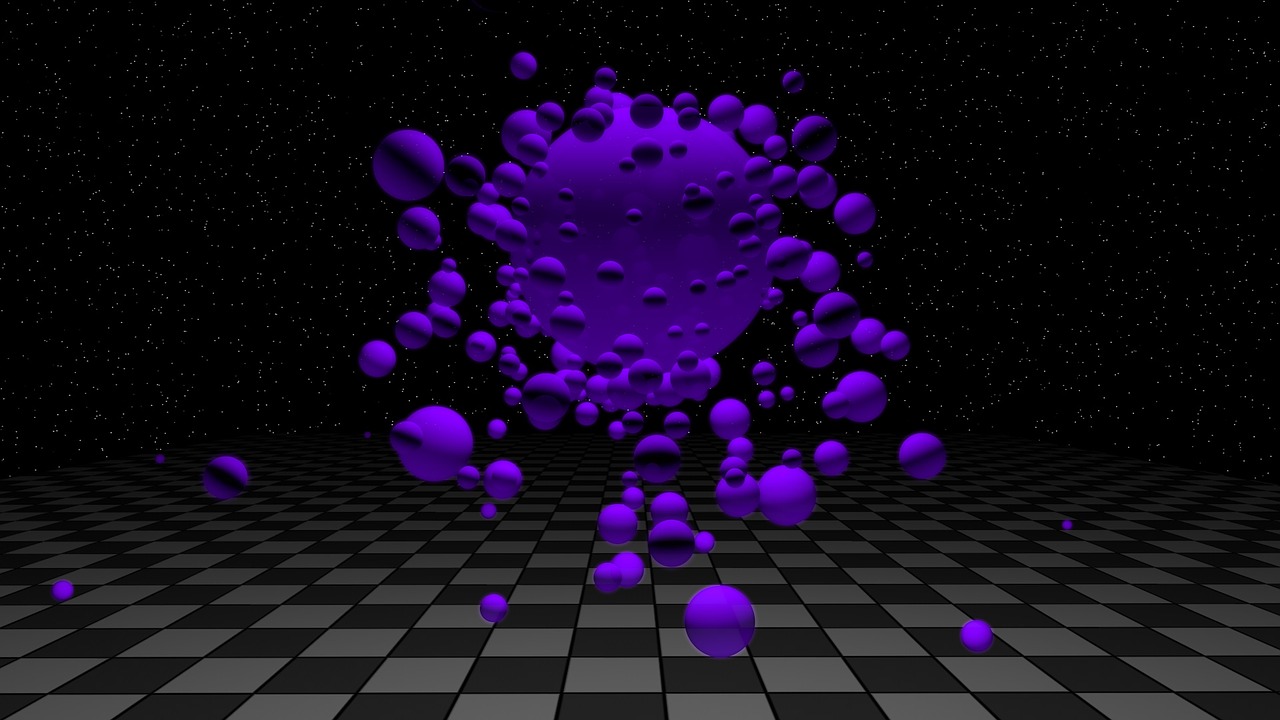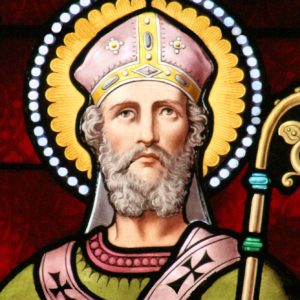Thank you for responding to my questions about The Ontological Argument. I’ve been trying to prove that the properties of existing in a world and being omniscient and omnipotent in that world are all together logically consistent. Intuitively, I think they might be consistent, but I haven’t been able to prove it yet.
In logic and mathematics, consistency of a theory can be proven only so far as relative to another theory that is already assumed to be consistent. As an example, Lobachevskian hyperbolic geometry, where all triangles have an angle sum of less than 180 degrees, was proven to be just as consistent as classical Euclidean geometry, where all triangles have an angle sum of exactly 180 degrees. This was accomplished by embedding a model of hyperbolic geometry within Euclidean geometry. Until then, non-Euclidean geometries were thought to be inconsistent. We now know that not only is Euclidean geometry one of many possible geometries, but the actual world we inhabit is non-Euclidean, thanks to Einstein’s theory of general relativity.
Naturally, the actual world exists, so true facts about it must be consistent. Following the examples of consistency proofs in mathematics, I am trying to construct an embedding of a world inside the actual world where the embedded world contains such a being relative to that world. I am trying to accomplish this embedding without the assumption that an omniscient and omnipotent being exists in the actual world, since that assumption is what I am trying to prove consistent in the first place. I don’t know whether I will succeed.
Nevertheless, I think the most problematic assumption in the Ontological Argument is neither omniscience nor omnipotence nor omnipresence nor omnibenevolence. The most problematic assumption is that a “necessarily existent” being could metaphysically possibly exist. Like we saw with the Riemann Hypothesis, any proposition deemed necessary which we assume to be true in some possible world cannot be false in any possible world. Anything that possibly necessarily exists must either exist in all possible worlds or in none of them. So that’s a really big assumption to make, which requires consideration of all possibilities.
It’s not controversial to claim that certain abstract logical and mathematical statements must be true in every possible world. Although it’s not controversial, I’m not quite as sure as I once was about the necessity of 2+2=4; after all, “the sum of angles of a triangle are 180 degrees” was once thought to be necessarily true but is now known to be false in some possible worlds including our own actual world. So we may need to re-examine our intuition about necessary truths in mathematics.
But mathematical statements aside, I can conceive of a possible world without any being existing in it. By “being”, I mean something that must be alive or otherwise sentient. Such a possible “being-less” world is not a semantically meaningless concept, unlike your example “The letter orange smells heavy”, which could only make sense to someone with a severe case of synesthesia. Nor should we assume a “being-less” world is inherently contradictory, as I’ll explain in the following thought experiment.
For example, one “being-less” world that we can conceive of is the actual universe with all beings either removed or prevented from appearing in the first place. Unless we already believe in the Maximally Greatest Being aka God (whose existence is the very thing we are trying to prove with the Ontological Argument), we observe that each being in the actual universe is a contingent being who can hypothetically be removed from the universe. All creatures eventually die. And dying stars would wipe out any life that might be present in their systems. Also, there are counterfactual possible worlds in which my parents never met, so in those worlds, I don’t exist.
Once all beings are removed, then space and time, matter and energy, physical and mathematical and logical laws–all of which appear to have been present in the universe before life on Earth–would presumably still remain in the universe, but there would be no life or sentience of any sort.
Now, in order to prevent this possibility, we must assume that every possible world is sustained by some being (or ghosts of beings?), such as the MGB aka God, without which that world would cease to be possible. That is, we must remove from consideration the possibility of a “being-less” world. We must remove from consideration not only possible worlds that never had beings but also worlds that used to have beings but don’t any longer, including possible deistic worlds with beings who created everything else and then committed suicide, destroying themselves but leaving the worlds on autopilot.
If we assume that the only possible worlds are ones where there exist beings to sustain them, then we are effectively assuming that all possible worlds are sustained by gods or in the mind of a solipsist.
I’ll grant that the assumption that the statement “a necessarily existent being exists” is epistemically possible; it seems intuitively false to me, but as you pointed out, intuition can be wrong. But now that I understand that the metaphysical premise “possibly a necessarily existent being exists”–by itself without further talk of greatness–requires disavowing the slightest possibility of “being-less” worlds, I won’t grant that as a first premise, because “being-less” worlds appear to me to be intuitively possible.
To accept even that single premise by itself, I would have to admit not just that my intuition about the possibility of “being-less” worlds could be wrong, but that my intuition must be wrong. So I would need some very strong evidence for that premise before I would be willing to grant it.
D. J.
—-
Evan,
I’m thinking of an argument based on my previous email. It proves that a Maximally Greatest Being does not exist. It relies on a postulate that I think many uncommitted agnostics, for whom the existence of supernatural beings is an open question, would accept.
Postulate: It is metaphysically possible that no supernatural beings actually exist.
Lemma: There is a possible world with no beings at all.
Proof:
1. According to the postulate, it is metaphysically possible that no supernatural beings exist in the actual world.
2. Therefore, there is some possible world (which may or may not be the actual world) in which the natural laws and matter are the same as in the actual world, but all beings that exist are natural beings.
3. All natural beings exist in a contingent sense and can be removed en masse from such a possible world (e.g., by the death of stars or by counterfactual accidents preventing the formation of life in the first place) while the rest of that possible world continues to exist.
4. Therefore, the world that results from removing all beings from that possible world is another possible world.
5. Therefore, there is a possible world with no beings at all.
Now we use this lemma to prove by contradiction that a Maximally Greatest Being does not exist.
Theorem: A Maximally Greatest Being does not exist.
1. Suppose that a MGB exists.
2. Therefore, a MGB necessarily exists, since necessary existence is one of its essential properties (after you argued that necessary existence should be considered to be greater than contingent existence).
3. Therefore, a MGB exists in every possible world.
4. Therefore, every possible world contains at least one being.
5. But according to the previous lemma, there is a possible world with no beings at all.
6. Since we have reached a contradiction, the assumption that a MGB exists must be false.
7. Therefore, a MGB does not exist.
Where is the flaw in my reasoning? If you don’t accept the first postulate, then haven’t you already committed yourself to the existence of at least one supernatural being? In that case, how could the Ontological Argument be used to persuade those who don’t already believe in supernatural beings?
—————————————————————————————————–
—————————————————————————————————-
 You are clearly well learned in logic and philosophy, but for readers who may not be, let me point out that in order for an argument to be sound, the logic must be valid and all of the premises must be true. The problem with your arguments against the existence of a Maximally Great Being are as follows. The first argument is a failure because Premise 1 of your argument would be false if a Maximally Great Being were logically possible. If a Maximally Great Being is logically possible, he exists in some possible world, therefore he exists in every possible world, and therefore he exists in the actual world. So, Premise 1 of the first argument and premise 5 of the second just would not be true. There would be no logically possible world in which a Maximally Great Being does not exist. Therefore, the argument against an MGB would fail.
You are clearly well learned in logic and philosophy, but for readers who may not be, let me point out that in order for an argument to be sound, the logic must be valid and all of the premises must be true. The problem with your arguments against the existence of a Maximally Great Being are as follows. The first argument is a failure because Premise 1 of your argument would be false if a Maximally Great Being were logically possible. If a Maximally Great Being is logically possible, he exists in some possible world, therefore he exists in every possible world, and therefore he exists in the actual world. So, Premise 1 of the first argument and premise 5 of the second just would not be true. There would be no logically possible world in which a Maximally Great Being does not exist. Therefore, the argument against an MGB would fail.
It is true that contradictions cannot be actualized. You cannot have A and Non-A be true at the same time, in the same sense. So, if there a possible world in which no beings exist, that would mean an MGB does not exist, as he would not be Maximally Great since he would lack the property of necessary existence as shown by not existing in every single possible world. So, I would agree that if there is a possible world in which no beings at all exist, then a necessarily existent being does not exist. On the other hand, if The Ontological Argument is sound, then there really is no possible world in which there is a complete and total absence of sentient beings.
In order to show that premise 1 of the Lemma and 5 of the Theorem are true, you would have to show that the first premise of The Ontological Argument, “It is possible that a Maximally Great Being Exists” is false.
Now, you said that you think “the most problematic assumption in the Ontological Argument is neither omniscience nor omnipotence nor omnipresence nor omnibenevolence. The most problematic assumption is that a ‘necessarily existent’ being could metaphysically possibly exist.” But why would you say that? There doesn’t seem to be anything logically impossible about a being whose existence is logically necessary.
Based on the argument put forth in your second e-mail, it would be that your problem with a necessary being is that you think it is intuitively possible that there is a world with no beings in them, necessary or otherwise. But if it is possible that a necessary being (with omnipotence, omniscience, omnipresence, moral perfection) exists, then he exists in all possible worlds, and therefore your intuition that there is a possible world with no beings at all is a false intuition.
At the end of your second e-mail, you said “If you don’t accept the first postulate, then haven’t you already committed yourself to the existence of at least one supernatural being? In that case, how could the Ontological Argument be used to persuade those who don’t already believe in supernatural beings?” — The Ontological Argument does not require that you “already believe in supernatural beings” nor does it require that one “commit themselves to the existence of at least one supernatural being”. All The Ontological Argument requires to be successful is for you to concede that a Being with all the aforementioned properties is an actualizable state of affairs. You don’t need to commit yourself to theism prior to establishing that. What The Ontological Argument does is unpack the implications of the concession that an MGB is actualizable. What one finds is that if you concede that a necessary, omnipotent, omniscient, omnipresent, morally perfect Being is possibly instantiated, then he is instantiated in at least one possible world. But since necessary things cannot be necessary in one possible world but not others, then by being instantiated in one possible world, he is instantiated in all of them. And since the actual world is a possible world, what follows from saying that an MGB exists in every possible world is that He exists in the actual world, which is just another way to say “An MGB exists”.
As I explained in “Q&A: Is The Ontological Argument Question Begging” the conclusion is a logical entailment of the first premise. Accept it and the rest fall like dominoes.
I don’t think one can adequately falsify the first premise by saying that one can imagine a world without God. I think that’s a wrongheaded tactic. A better tactic to refuting The Ontological Argument would be to dismantle the concept of a Maximally Great Being, i.e to show that the concept is impossible. Attempts to do this have been made, such as the logical version of the problem of evil which tries to pit God’s omnipotence against His omnibenevolence in light of evil in the world (which I refuted in the first part of my blog post series on the problem of evil). Others try to show that just the singular attribute of omnipotence is incoherent, usually by posing it in the form of the question “Can God create a rock so heavy that He cannot lift it?” Another attempt would be to show that the doctrine of The Trinity is logically incoherent (which as I’ve said previously, is an entailment of an MGB’s moral perfection) While such attempts fail (click the links to see why), at least they go at The Ontological Argument from the right perspective. I don’t think yours does.
In order to establish that an MGB does not exist, you need to find something about the concept of an MGB which would render it from existing in any possible world, much less the actual world. Only then could I agree with “1. According to the postulate, it is metaphysically possible that no supernatural beings exist in the actual world.” and “5. But according to the previous lemma, there is a possible world with no beings at all. 6. Since we have reached a contradiction, the assumption that a MGB exists must be false. 7. Therefore, a MGB does not exist.”
Discover more from Cerebral Faith
Subscribe to get the latest posts sent to your email.





